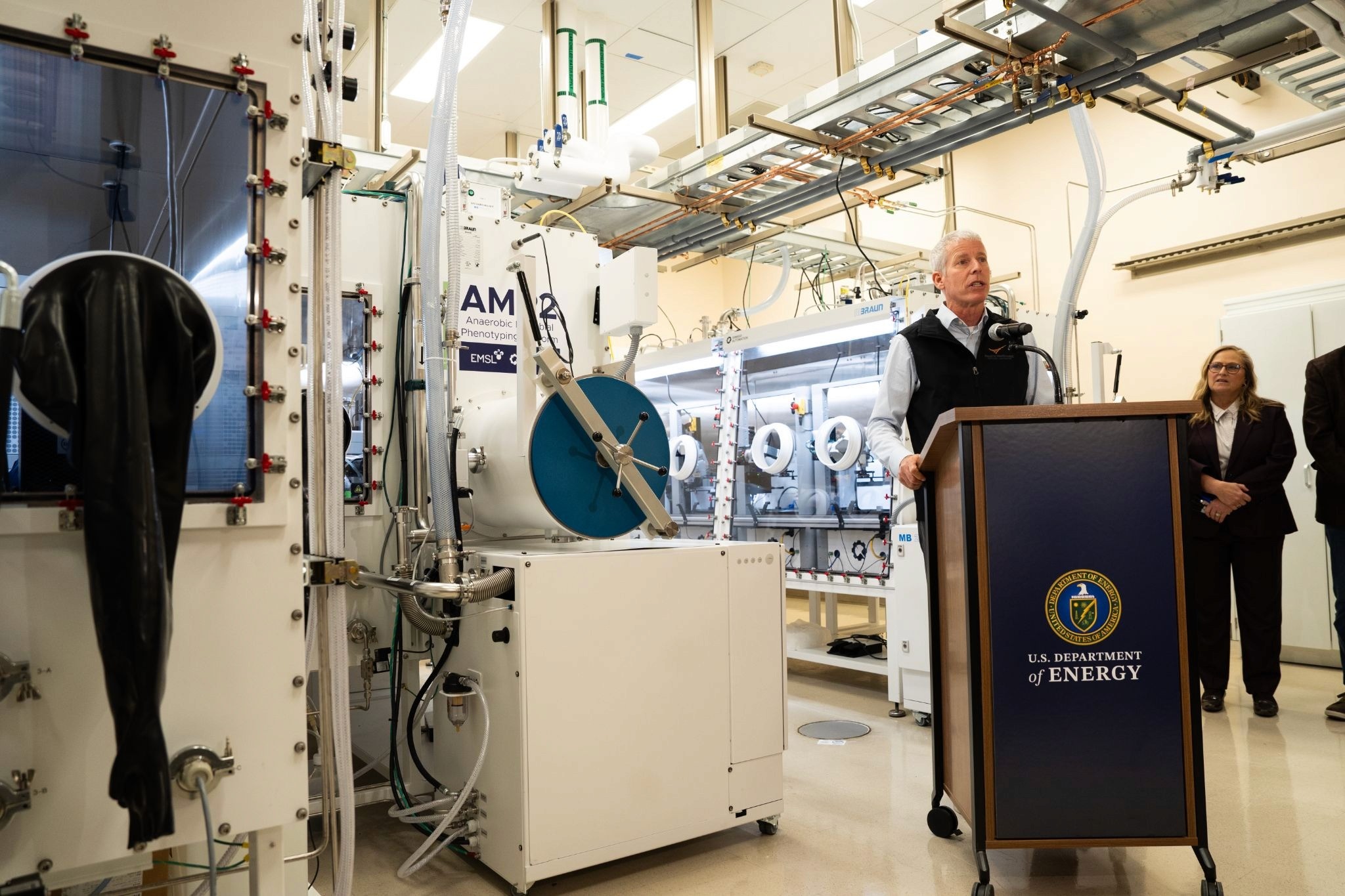Biomanufacturing Scale Up
Lygos and the Agile BioFoundry Generate Largest Multi-Omics Dataset to Accelerate Machine Learning Capabilities for Engineering Strains for Producing Organic Acids
Mar 15, 2021
Scientists will generate more than 500,000 data points to help optimize strain performance, increase operational efficiencies and improve production for malonic acid
March 15, 2021 08:03 AM Eastern Daylight Time
BERKELEY, Calif.--(BUSINESS WIRE)--Lygos, Inc., a vertically integrated provider of safe and sustainable specialty ingredients, today announced that it is working with the U.S. Department of Energy Bioenergy Technologies Office’s Agile BioFoundry (ABF) to generate the largest multi-omics dataset for guiding the development of organic acids. Over the course of the project, scientists will produce more than 500,000 data points from a series of experiments. ABF is now using its artificial neural networks to train machine learning algorithms and provide actionable recommendations to help optimize strain performance, increase operational efficiencies and enhance production.
Together, Lygos and ABF aim to demonstrate a high-throughput engineering cycle that incorporates multi-omics analysis and machine learning with industry-leading cycle times. The project leverages Lygos’ expertise in designing, building and cultivating its organic acid yeast strains, as well as its malonic acid biosynthetic pathway. The multi-omics analysis is performed at Lawrence Berkeley National Laboratory, Pacific Northwest National Laboratory, and Sandia National Laboratories. Scientists are applying these machine learning techniques to analyze the datasets and make predictions on how to increase malonic acid production in subsequent cycles. The teams plan on making the workflow and dataset available to the public later this year.“The Agile BioFoundry’s objective is to develop and deploy technologies that enable commercially-relevant biomanufacturing, including using advanced machine learning methods in non-model microbes. We’re pleased to be able to showcase our success with industry partners like Lygos, a leader in the bioeconomy,” said Jay Fitzgerald, Ph.D., Chief Scientist at the U.S. Department of Energy Bioenergy Technologies Office.“Lygos is the first and only company to demonstrate the production of a bio-based analog of malonic acid that provides identical performance without the incumbent toxic production process,” said Eric Steen, Ph.D., CEO of Lygos. “This project with the ABF is another validation of our commitment to leveraging the latest advances in high-throughput analytics and data science. The combination of this multi-omics dataset and these new machine learning capabilities will help unlock new opportunities to further improve the performance and production of our safe and sustainable organic acids and health & wellness ingredients.”About LygosLygos has created a fully integrated biological engineering platform focused on organic acid specialty ingredients, and health & wellness ingredients with funding from the U.S. Department of Energy, U.S. Department of Agriculture, National Science Foundation, and National Institutes of Health amongst other institutional and strategic investors. Lygos’ sustainable, bio-based chemicals replace expensive, environmentally degrading alternatives from traditional industrial suppliers, enabling customers to create better, safer products with value-added performance. For more information, visit www.lygos.com and follow us @LygosBiotech.About the Agile BioFoundryThe Agile BioFoundry is one of nine bioenergy industry consortia funded by the U.S. Department of Energy Bioenergy Technologies Office. The Agile BioFoundry works to accelerate and streamline the biomanufacturing pipeline through the use of synthetic biology tools, processes for predictable scale-up, machine learning, and the use of non-model host organisms by establishing a robust set of biomanufacturing principles. Learn more at agilebiofoundry.org.About the U.S. Department of Energy Bioenergy Technologies OfficeThe U.S. Department of Energy Office of Energy Efficiency and Renewable Energy Bioenergy Technologies Office supports groundbreaking technologies to produce fuels, products, and power from sources of biomass and waste resources. Bioenergy can help ensure an economically sound and secure future while reducing environmental impacts through developing affordable domestic fuels and co-products, advancing clean energy sources, generating domestic jobs to support the growth of the U.S. bioeconomy. Learn more at energy.gov/eere/bioenergy.

https://www.businesswire.com/news/home/20210315005079/en/Lygos-and-the-Agile-BioFoundry-Generate-Largest-Multi-Omics-Dataset-to-Accelerate-Machine-Learning-Capabilities-for-Engineering-Strains-for-Producing-Organic-Acids

















